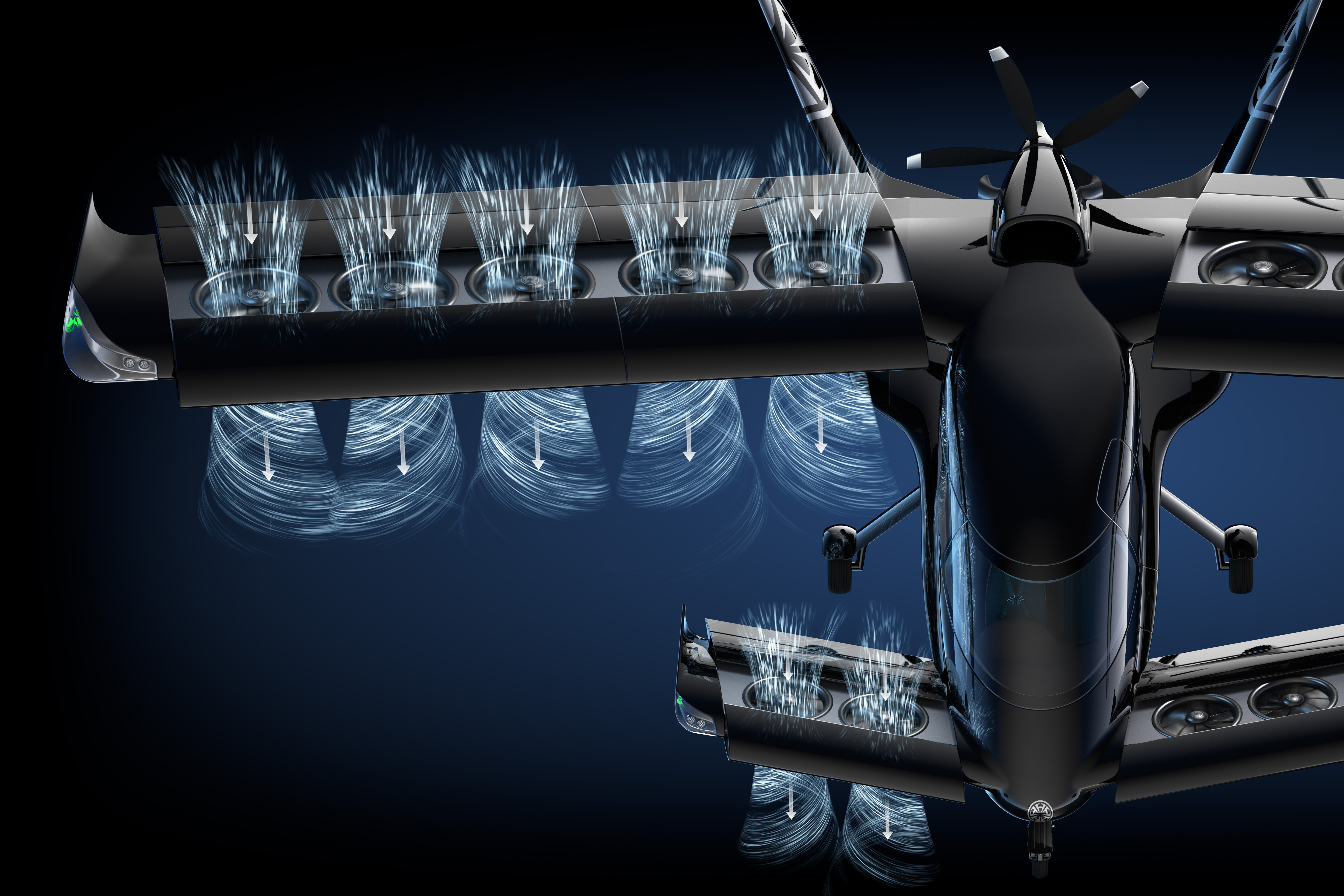Click Here to View This Page on Production Frontend
Click Here to Export Node Content
Click Here to View Printer-Friendly Version (Raw Backend)
Note: front-end display has links to styled print versions.
Content Node ID: 426769
Horizon Aircraft has started building the first full-scale prototype of the Cavorite X7 hybrid-electric VTOL aircraft it aims to fly by mid-2027. According to the Canadian start-up, its design featuring ducted fans installed in the patented Hovr wing and canard has been validated by the recent transition flight it achieved with a sub-scale demonstrator in mid-May.
The Horizon engineering team has started to integrate the propulsion unit and is testing its worm drive actuators. According to CEO and co-founder Brandon Robinson, it is close to finalizing the selection of a leading aircraft engine maker to provide the Cavorite’s turboprop that will serve as a generator; the company has selected electric motors for the six-passenger model and is close to specifying batteries.
The demonstrator aircraft that Horizon has been flying for some time has a 22-foot wingspan and weighs close to 600 pounds. Robinson told AIN that the fan-in-wing design has eliminated the need for the more complex tilting wings and pivoting nacelles employed for several eVTOL aircraft programs.
Ontario-based Horizon primarily sees the Cavorite providing an alternative for existing helicopters in a variety of applications that could include personal and corporate transportation, as well as emergency medical support, on routes of up to 435 nm. “We’re going to be twice as fast [245 knots] and with savings of around 75% in terms of direct operating costs per unit mile,” Robinson said. “We’re getting lots of inquiries from hardcore operators who ask all the right questions about specific fuel consumption, operating costs, and time between overhauls.”

According to Robinson, some eVTOL aircraft developers are promising unrealistic utilization rates of 2,000 or more flight-hours each year, which he said “is four times the highest helicopter operation on the planet.” Horizon is consciously avoiding over-promising in terms of when the Cavorite will be certified, and is targeting utilization rates of more like 300 to 500 hours per year and manufacturing rates building up to 200 or 300 units annually.
Horizon also sees some potential for its VTOL aircraft to contribute to the disruption of regional air services. Robinson said he has had some discussions with airlines interested in ways to augment services for first- and business-class passengers.